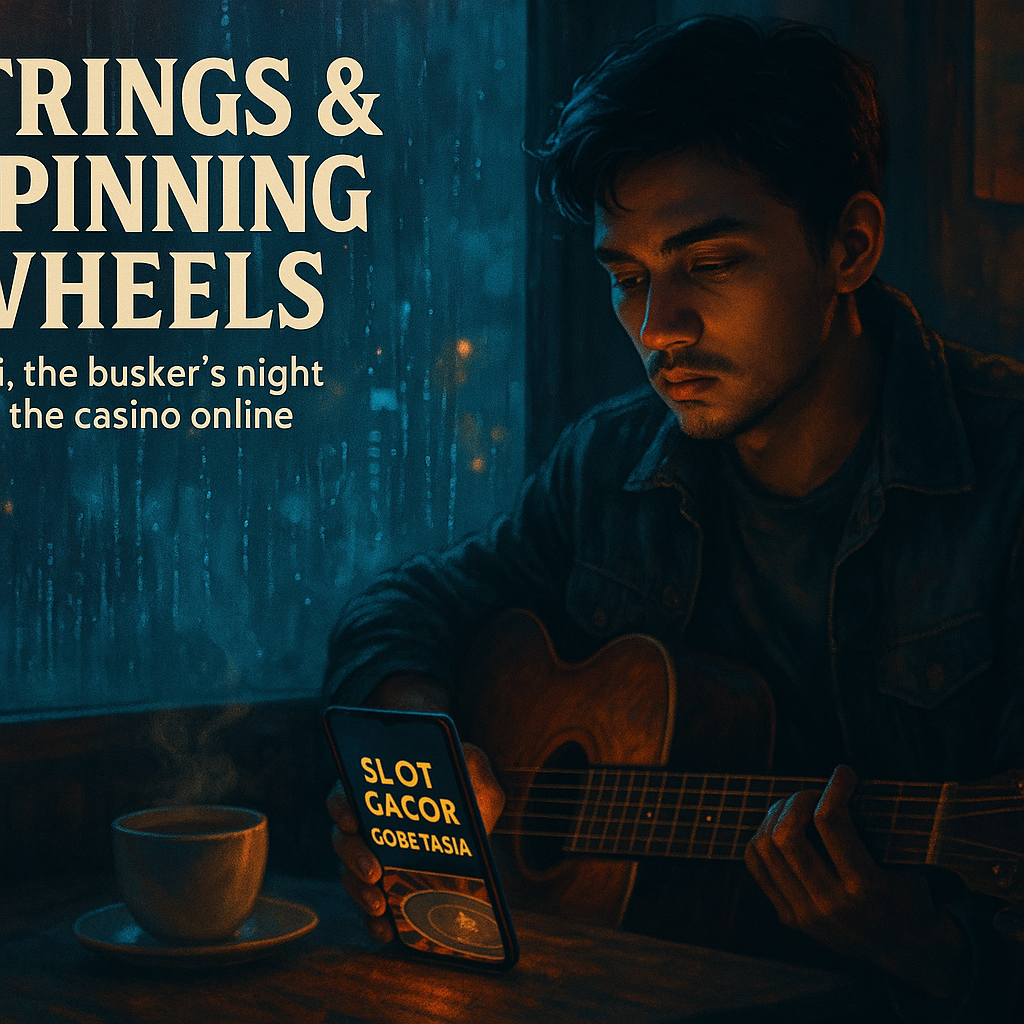Strings & Spinning Wheels
Rafi’s fingers were nicked from a long evening of busking—steel strings carving half-moons into his fingertips as commuters drifted past the station gates. When the last train sighed out and the echo of his guitar finally settled, he packed his coins into an old tobacco tin, bought a bowl of broth from the night cart, and followed the neon glow of a café that stayed open for strangers like him.
Inside, the room hummed with refrigerators and fluorescent light. Rafi took the corner table, unfolded his battered phone, and opened a tab he’d bookmarked weeks ago: a lively gaming lounge with chat threads that moved like subway cars. Somewhere in that river of messages, a topic flickered to the top—slot gacor Gobetasia. The phrase sounded mystical, like a back-alley club someone only finds by accident. Rafi didn’t chase magic, though. He chased rhythm.
The Wheel’s Rhythm
He tapped into a quiet roulette room. The wheel on his screen glittered in reds and blacks; the tiny ivory ball sketched quick circles like a drummer brushing a snare. Rafi breathed with it—four counts in, two counts hold. Music first, decisions second.
The chat scrolled with nerves: go! hit! now! Rafi muted it. He was a street musician; he knew the crowd’s tempo isn’t always the song’s. He watched ten spins and touched nothing. He listened for the part beyond sound—the sway between certainty and chance, the place where a note could bloom or die. When he finally pressed his thumb to the screen, it felt like catching the downbeat he’d been waiting for.
Three Notes in a Busker’s Journal
- Observe before you act.
- Leave when the melody lands.
- Never bet what you can’t sing about later.
Between rounds he wandered back to the forums—patient advice, short drills, and reminders to keep sessions brief. Some suggested light, low-pressure games in slot gacor Gobetasia to stay relaxed. Rafi liked that; he let a simple looping mini-game tick like a metronome while he finished his broth.
After the Set
Rain deepened to ink. A delivery bike hissed through puddles. The café owner turned a newspaper page with the reverence of a priest. Rafi closed the roulette tab at the minute he’d promised himself he would—his rule, the one that kept his head clear and his songs clean.
On the walk back, the city was a stage reset for tomorrow: cables coiled, chairs stacked, one star pinned over the dark river. He counted nothing; he only felt the lightness that visits a musician when a set goes right—not because the crowd was loud, but because he played the tune he meant to play.
Encore, Gently
The next afternoon he bought new strings, a clean strap, and a clip-on tuner that blinked green when the note was true. That night at the station, a boy stopped, a woman hummed, someone filmed a verse.
Later, in the café’s quiet corner, the wheel slept and the forum whispered goodnights. In Rafi’s chest, a steady tempo kept time: not the beat of luck, but the rhythm of choosing—of knowing when to play, when to listen, and when to let the song end exactly where it should.

